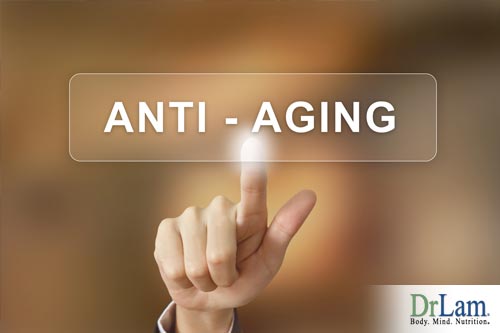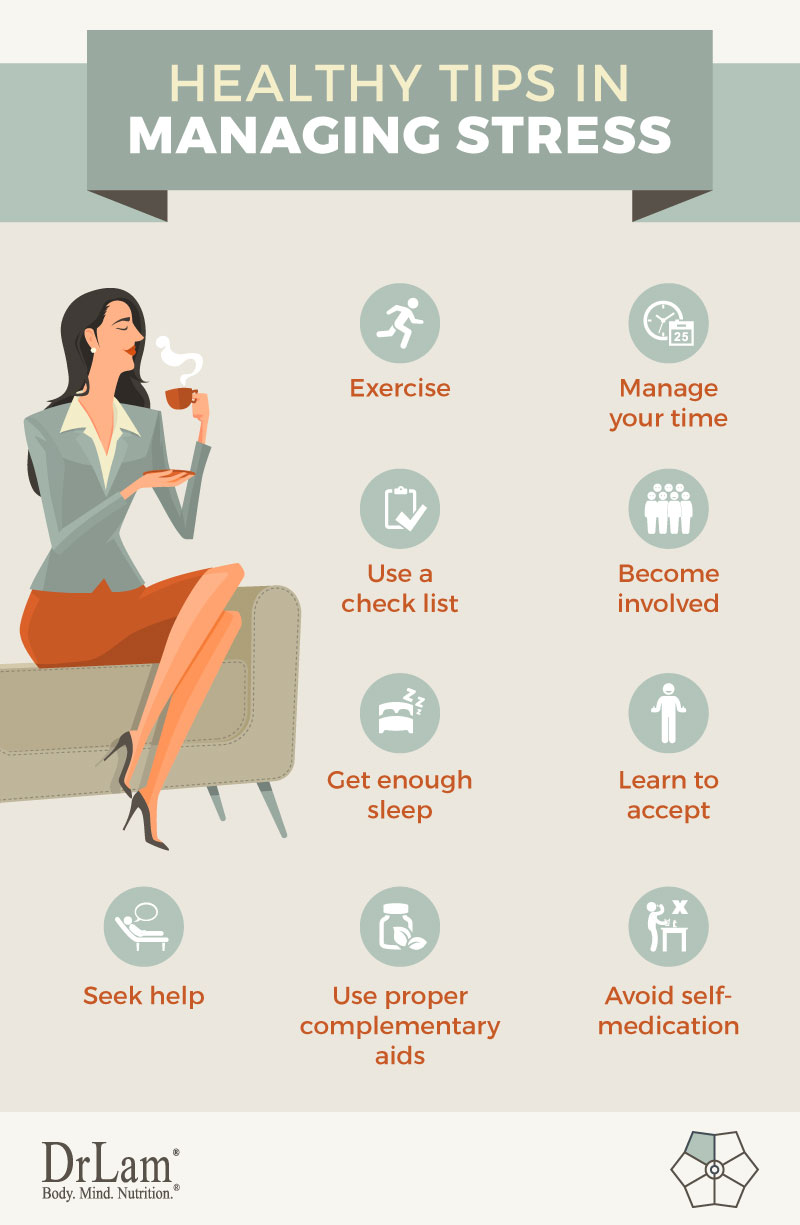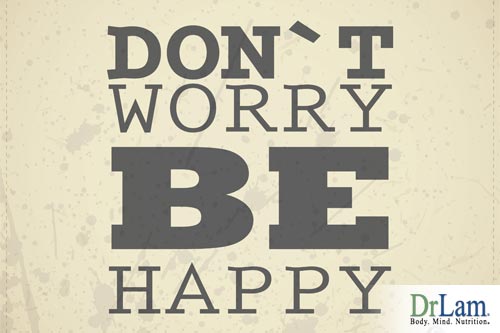 We all need a little stress. Life would be dull and boring without it. The right types of stress and the right attitudes toward stress add flavor and opportunities for growth, excitement and pleasure. Too much stress, however, can be harmful to your physical and mental well being, in addition to accelerating the aging process. It is important to learn tips in managing stress to reduce the risk of illness and disease, as well as increase your overall sense of well being.
We all need a little stress. Life would be dull and boring without it. The right types of stress and the right attitudes toward stress add flavor and opportunities for growth, excitement and pleasure. Too much stress, however, can be harmful to your physical and mental well being, in addition to accelerating the aging process. It is important to learn tips in managing stress to reduce the risk of illness and disease, as well as increase your overall sense of well being.
Our challenge is to make sure stress does not work against us. Since it is always with us, our job is to determine which kinds of stresses we like (eustress) and which kinds create disharmony in our minds and bodies (distress). Because everybody's reactions are so personal, you cannot compare your stress to that of others. Your attitude can make a big difference. The same stress may feel to some as distress and to others as eustress.
Before we learn some tips in managing stress, let's see how you classify the stresses you experience. Athletic people will enjoy physical stresses. For some, the heavier the weight they lift, the happier they feel. Achieving something challenging brings them satisfaction. A muscle expanding in size just where they want it to can make them feel even joyful. However, this may not be your source of eustress. Weight lifting may feel like torture because the muscles become so sore. Athletes, on the other hand, actually like the sensation of sore muscles, because it means those muscles are being toned and growing bigger.
For a very busy, "get-up and go" person who thrives on managing many people and keeping a busy office humming smoothly, going to the beach on a beautiful day may cause great frustration. Their day seems completely non-productive, causing great distress. Have you ever been around someone like this? Perhaps you are somewhat like this person. For you, the stress caused by a busy office is very rewarding.
Prolonged, unrelieved stresses, especially of the mental/emotional kind create health problem such as high blood pressure, ulcers or even cardiovascular disease. These stresses cause cortisol levels to remain elevated for sustained periods. Cortisol hastens aging. When stress becomes chronic it is important to learn tips in managing stress.
Physical exercise is one of the most common tips in managing stress. While exercise is good for most people, many individuals who are already stressed find it difficult to fit it into their already hectic schedules. Physical exercise can also be harmful if done in excess. Exercise causes oxidation in the cells of your body. Over-oxidation is one of the accelerators of the aging process.
While too much physical stress can accelerate your aging process at the cellular level, moderate levels of daily physical stress are beneficial. Aerobic exercise is an ideal way of getting rid of the excess cortisol built up by mental stress. That is why a good aerobic exercise program helps you to relax while providing a good physical foundation to handle your mental stress.
As always, early detection of problems is the key to a pro-active anti-aging program. Detecting the early signs of distress or too much stress alerts you to do something about it. Researching various tips in managing stress can be very beneficial. Be adventurous, try new things. This can make a significant difference in the quality if your life and may actually help you live much longer.
 The body goes through the following stages in response to stress:
The body goes through the following stages in response to stress:
Let's see how these stages work when our body responds to the most common source of stress - environmental factors. The immune system is designed to protect us from foreign matter. When an environmental pollutant enters our system, the body is alarmed. The immune system responds by releasing antihistamine into the blood stream. The resultant watery eyes, sneezing, mucous formation and sometimes perspiration are designed to entrap or expel the foreign material. Again, a little is protective. Too much is harmful.
During the resistance stage, the body is trying to recuperate from the effects of the alarm stage by repairing the system.
Continuing stressful conditions, the body must respond to these intermittent problems as if the attacks would never stop. What eventually develops are rashes, migraine headaches or even hay fever. People call these responses "allergy problems". These can then cause a chain of negative reactions. For example, people may suffer from insomnia because excess mucous disrupts their breathing at night. Other people lose productivity because of headaches - either regular or migraine. Eventually these responses to stress, themselves become a stress resulting in ulcers and mental exhaustion.
Without doubt, this will cause acceleration of aging or premature aging at the cellular level.
Learning to cope with stress is an important step towards healthy living. Tips in managing stress can come be heard everywhere. Make sure you are exploring healthy tips in managing your stress and with all life changes, begin slowly.
The following tips in managing stress will get you started in the right direction.

Relieve the build-up of pressure by doing something physically active. Many enjoy walking or playing a favorite sport. Others find gardening or dancing does it for them. These activities help to release the uptight feeling from mental stress. The result is that both your mind and body relax. Mind and body working together result in a synergistic response.
Relaxing meditative exercises have also become popular. Tai-chi, Qi-gong, and Yoga uses your body's energy to release tightness and balance the mental and physical stresses.
You need a break. Schedule your work at a reasonable pace remembering to take time for mini-breaks several times during the day. Remember recreation. If you can just relax and have fun at the end of the week, you can greatly relieve the stress built up during the workweek. Then you will be refreshed and ready to handle the challenges of the new week.
It is not easy to remember everything that needs to be done. By making a list of what you need to do each day, you will avoid being overwhelmed by trying to take care everything at once out of fear you will forget to do something. You also have the satisfaction of seeing what you have accomplished as the items are checked off.
A list also helps you to prioritize your jobs, so that you can be sure to get the most important and pressing items done first.
 Sitting alone doing nothing creates boredom. You need to get out, and participate in what is happening in your community. You don't feel so sorry for yourself when you direct your thoughts away from yourself.
Sitting alone doing nothing creates boredom. You need to get out, and participate in what is happening in your community. You don't feel so sorry for yourself when you direct your thoughts away from yourself.
Helping other people is also a successful method for feeling good. Enjoyable activity and interaction stimulate your brain to release endorphins - the body's own morphine. This gives you a natural "high" and stimulates your body's ejuvenation processes. The saying is as true for the mental abilities as it is for physical - "use it or lose it".
Lack of sleep causes irritability that is difficult to control. Insufficient sleep intensifies the negative effects of daily stress. Sound, sufficient sleep rejuvenates your body. It is during the deep stages of sleep that growth hormone is released. So there is truth to the saying "you grow while you sleep." But this is not growing "old", but growing "better". The proper amount of sleep, especially deep sleep, decelerates the aging process.
Worrying about or trying to change things over which you have no influence creates stress. Learn to distinguish between the things you can change, and those you cannot. Then learn to accept the things you cannot change. If you learn how to do this, you are more likely to recognize the time when a previously unchangeable situation can now be reshaped. This will help lower your cortisol levels.
If you have a serious problem, and you recognize it, don't wait to seek help. Find someone who will listen to you, maybe a friend who has resolved a similar stress to yours. Professionals who are specialists in advising you on how to handle stress are also very helpful.
Don't wait until it the problem becomes too serious, for then it may require medication. Medications always have negative side effects.
The most popular one in this area is a nutritional supplement that has a neurothropic effect. Vitamin B6, B12, folic acid, bioflavonoids are known to have neurothropic effects.
St. John's Wort, Kava2 and chamomile are herbal, homeopathic products that have been reported to help alleviate the symptoms of depression and poor sleep.
Zinc, vitamins A, C and E, L-glutamine, primrose and grape seed extract contain ingredients that help boost your immune system defending you against environmental, physical and/or mental stress.
Look for other natural products on the market that provide excellent subjective benefits to human health as support systems and preventive measures.
Many over-the-counter drugs for excessive stress have side effects with adverse reactions. Their chemical reactions may cause negative changes in body chemistry resulting in premature aging and stress at the cellular level. Also, drugs may be habit forming creating more stress than they take away.
Use these medications only when you do not have access to natural products, vitamins or a doctor's prescription. And then only following your doctor's advice and only when you really require them.
If you take natural products that help to prevent or reduce excessive stress and/or its symptoms, it is unlikely that you will develop out-of-control distress.
Screening yourself for early "distress" signals is very important.
The milestones to follow for early prevention and anti-aging action include:

Last but not least: Treat yourself well.

